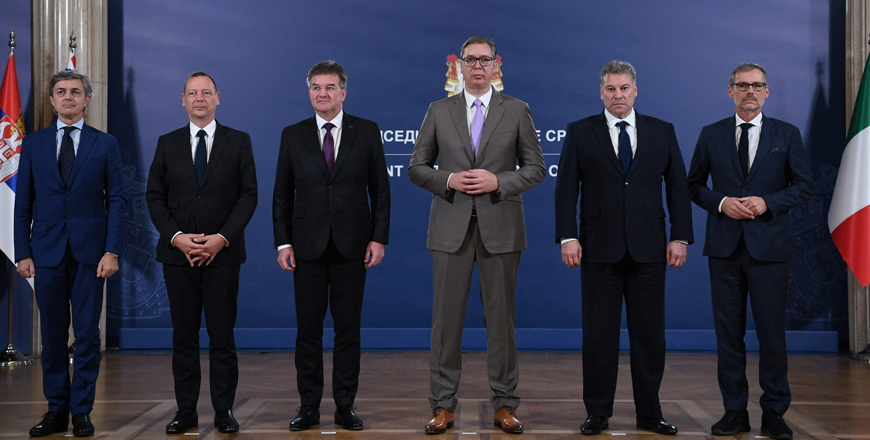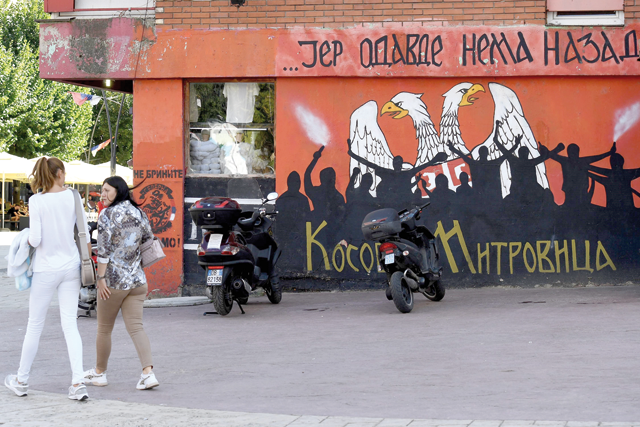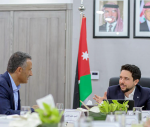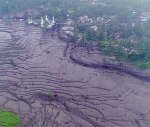You are here
Fighting ongoing after police officer killed in attack in north Kosovo
By AFP - Sep 24,2023 - Last updated at Sep 24,2023
BANJSKA, Kosovo — Gunmen holed up in a northern Kosovo monastery clashed with authorities on Sunday, according to Prime Minister Albin Kurti, hours after a police officer was killed when a patrol was hit by an ambush involving firearms and explosives.
Kurti said that the group of at least 30 heavily armed gunmen were now surrounded by authorities near the village of Banjska, where the patrol had been ambushed earlier Sunday, and called for their surrender.
The attack and ongoing firefight marks one of the gravest escalations in Kosovo in years, following months of mounting tensions and stalling talks between the government in Pristina and Serbia.
"There are at least 30 professional, military or police armed people who are surrounded by our police forces and whom I invite to surrender to our security agencies," said Kurti during a press conference.
The Serbian Orthodox Church confirmed that gunmen had stormed a monastery in Banjska, where pilgrims from the northern Serbian city of Novi Sad were staying.
Pictures released by Kosovo authorities showed several heavily armed gunmen wearing uniforms, barricading themselves at the monastery.
“We can see armed people in uniforms... they are firing on us and we are firing back,” Kosovo police official Veton Elshani told AFP by phone from Banjska.
Police later said in a statement that at least three attackers had been killed and one arrested. Another four civilian suspects carrying radio equipment and weapons were also arrested.
Kosovo police also confirmed that the Jarinje and Brnjak border crossings between Serbia and Kosovo had been closed following the incident.
Kurti’s comments at the press conference came hours after he called the ambush that killed one police officer and wounded another an act of terrorism and pinpointed the blame on the Serbian government.
“Organised crime with political, financial and logistical support from officials in Belgrade is attacking our country,” Kurti wrote on social media.
The NATO-led KFOR mission said its forces were present in the area, “standing ready to respond if required”.
According to Kosovo law, government authorities are not allowed to enter Orthodox properties, including churches and monasteries, without first receiving permission from the Serbian Orthodox Church.
Serbian President Aleksandar Vucic was set to address the media Sunday evening.
According to the Serbian government’s office for Kosovo, the president’s press conference would “debunk all the lies and hoaxes of Albin Kurti, the creator of chaos and hell in Kosovo”.
The attack comes more than a week after talks between the leaders of Serbia and Kosovo centred on improving ties failed to make a breakthrough during EU-mediated negotiations in Brussels.
The EU has been trying for years to resolve the long-running dispute between the Balkan neighbours that has soured relations since their war more than two decades ago.
Brussels believed it had broken the logjam by hammering out a plan to normalise ties in March, but since then there has been minimal progress.
The EU’s top diplomat Josep Borrell condemned Sunday’s attack, calling the targeting of police “hideous”.
“The responsible perpetrators must face justice,” Borrell wrote on social media.
The diplomatic stalemate comes as tensions in the troubled north have been smouldering for months, following the Pristina government’s decision to install ethnic Albanian mayors in four Serb-majority municipalities in May.
The move triggered one of the worst bouts of unrest in the north in years. Demonstrations followed, as well as the arrest of three Kosovar police officers by Serbia and a violent riot by Serb protesters which saw more than 30 NATO peacekeepers injured.
Kosovo remains overwhelmingly populated by ethnic Albanians, but in the northern stretches of the territory near the border with Serbia, ethnic Serbs remain the majority in several municipalities.
The tussle in the north is just the latest in a long list of incidents to rock the area since Kosovo declared independence from Serbia in 2008. That was nearly a decade after NATO forces helped push Serbian troops from the former province during a bloody war that killed around 13,000 people.
Belgrade, along with its key allies China and Russia, has refused to recognise Kosovo’s independence, effectively preventing it from having a seat at the United Nations.
During an address to the United Nations General Assembly last week, Serbia’s Vucic accused the West of hypocrisy. He said its recognition of Kosovo’s independence was based on the same justification as Russia’s war on Ukraine.
Related Articles
PRISTINA — An EU envoy warned Saturday that any delays in calming tensions between Kosovo and Serbia — which he described as more urgent tha
WASHINGTON — The United States urged Belgrade to pull its forces back from the border with Kosovo on Friday after detecting what it called a
GRACANICA, Kosovo — Sixteen-year-old Ilija Ivic just wants to dodge the abuse and play football.But as the first ethnic Serb picked to














